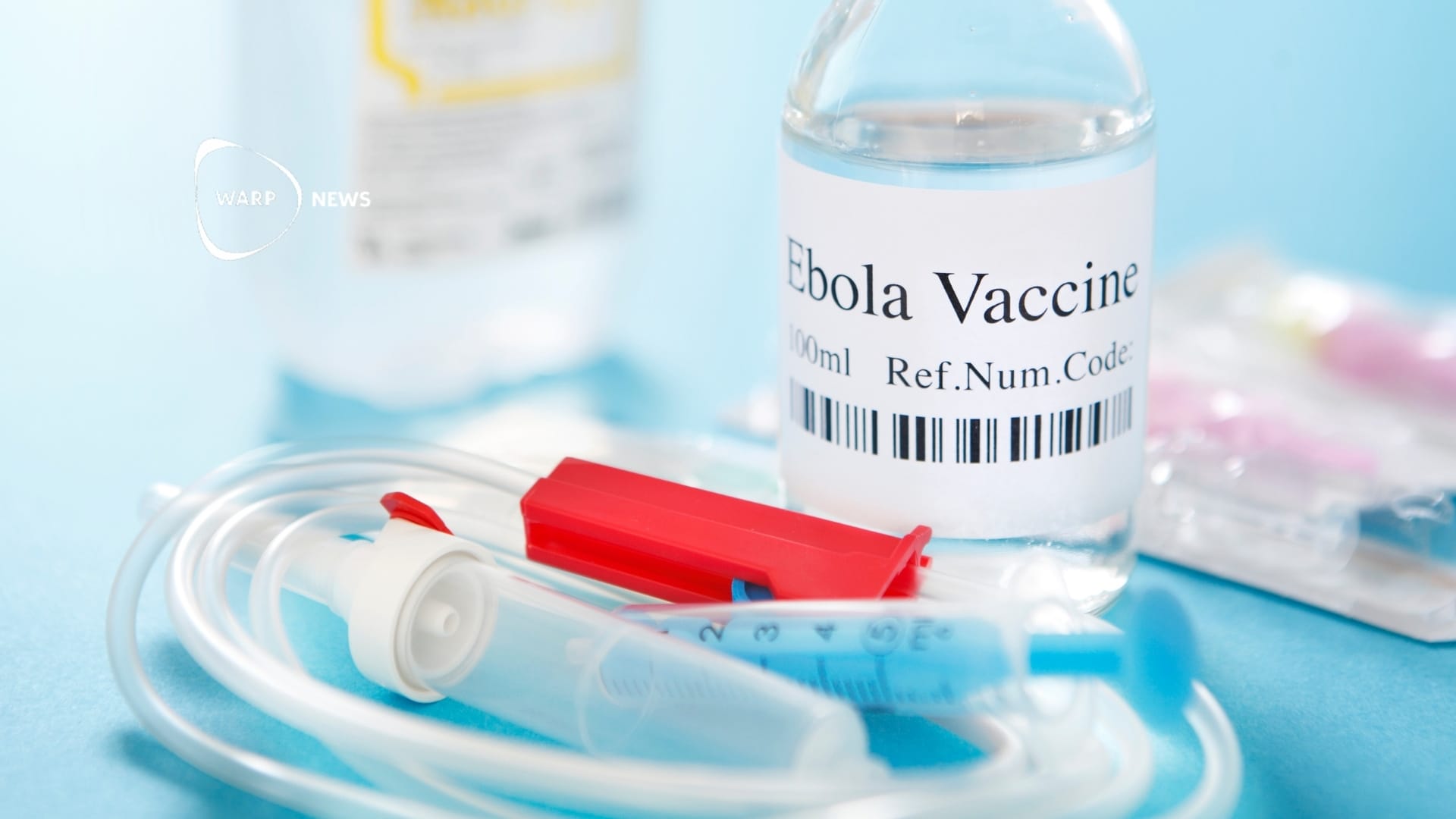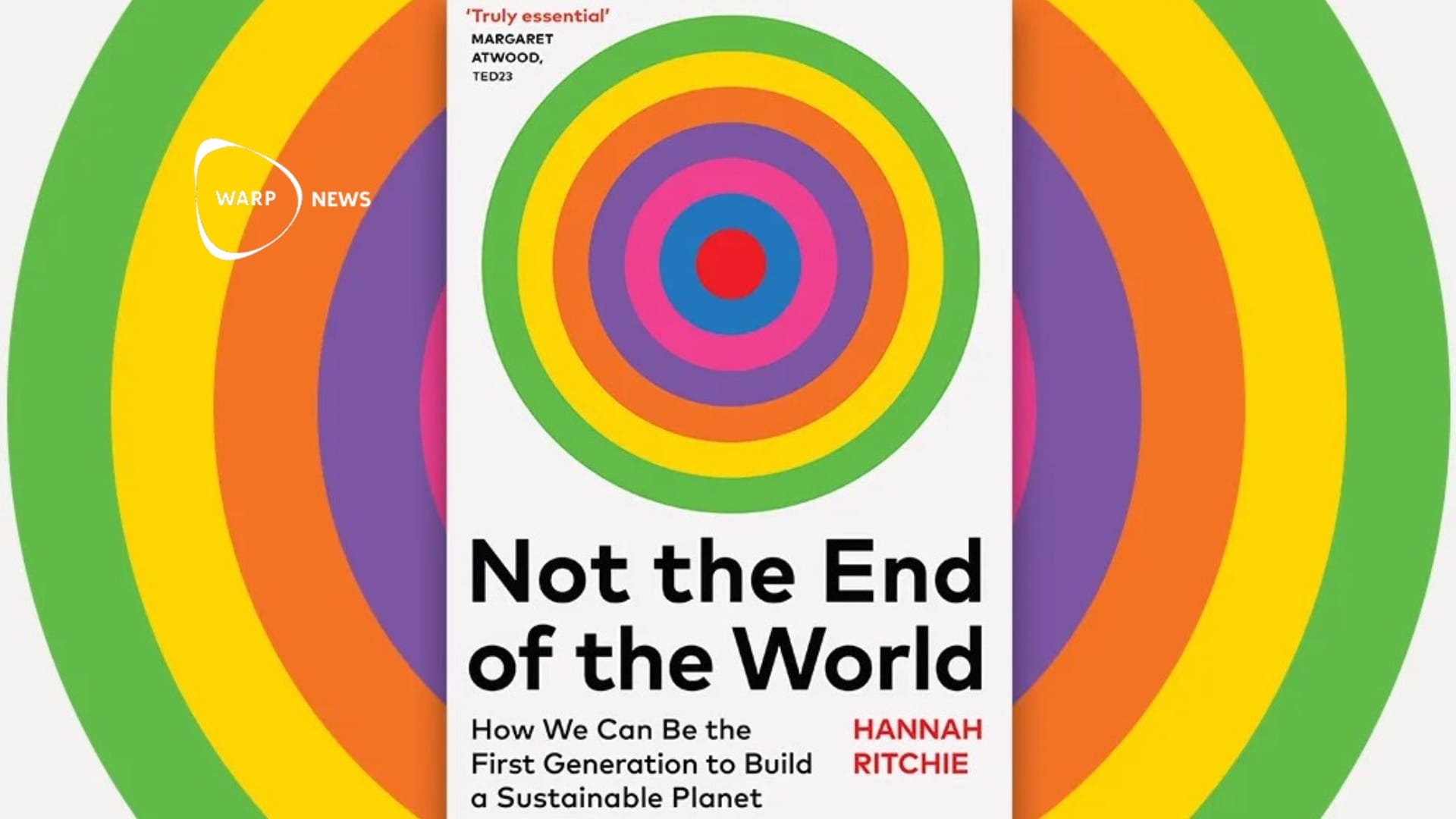
📗 Wow, so many bad things have peaked – and more peaks are coming
She left university without hope. But then she happened to see one of Hans Rosling's talks, and it changed her life. Now she wants to become 'Rosling' for sustainability and believes that we can become the first generation to live completely sustainably.
Share this story!
Hans Rosling changed Hannah Ritchie's life.
After studying Environmental Geoscience for four years, she left university without hope and without solutions to a long list of problems: global warming, starving polar bears, air pollution, deforestation, and much more.
"I believed I was living through humanity’s most tragic period," she writes.
She became so depressed by this that she started seeking a way out of the environmental field. Then one evening, everything changed.
"I saw bubbles darting across the television screen. A small man was chasing after them."
That man was Hans Rosling.
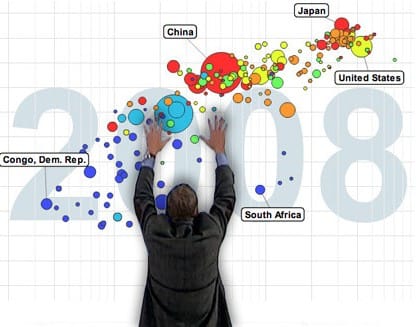
Ritchie was convinced that the world was getting worse. But here, Rosling showed that many things in the world are getting better. Important things like life, health, and education.
The experience led her to change her path in life. What Hans Rosling did to highlight how social problems are diminishing, Hannah Ritchie wants to do for environmental and sustainability issues.
After reading her book, Not the End of the World: How We Can Be the First Generation to Build a Sustainable Planet, I am inclined to believe that she can do just that. No one can mimic Hans Rosling's unique style, but the facts she fills the book with pack a punch. A strong one.
Instead of reviewing the book more than this, I have chosen a few quotes. It is chock-full of them, so it was quite difficult to choose. I highly recommend you read the entire book, it's a 5/5.
Many bad things have peaked
One thing that struck me when I was selecting quotes is how many bad things have peaked. Below you will find some of them, but far from all.
"I don’t think we’re going to be the last generation. The evidence points to the opposite. I think we could be the first generation. We have the opportunity to be the first generation that leaves the environment in a better state than we found it."
"Every day, 300,000 people get access to electricity and a similar number get clean water, for the first time. This has been the case every day for a decade."
"We’re breathing air that is cleaner than it has been for centuries."
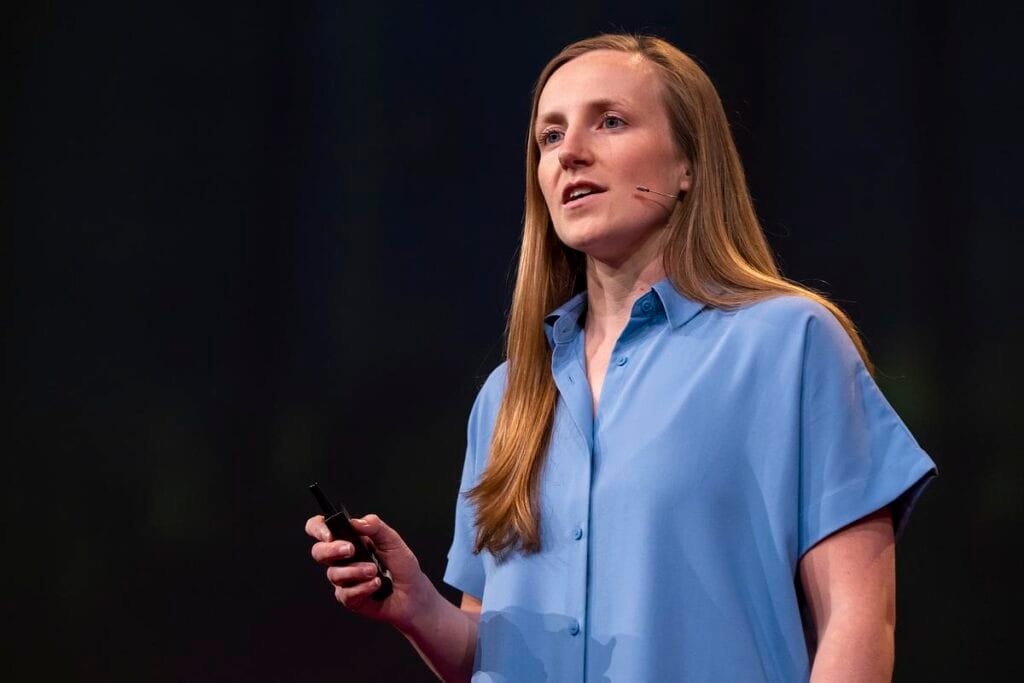
"My perspective on 1.5°C hasn’t shifted much since then. Without a major, unexpected technological breakthrough, we will go past this target. ... But my perspective on 2°C has changed. I’m now cautiously optimistic that we can get close to it."
"Death rates from disasters have actually fallen since the first half of the 20th century. And not just by a little bit. They have fallen roughly 10-fold."
"The world has already passed the peak of per capita emissions. It happened a decade ago. Most people are unaware of this."
"I’m optimistic we can peak global emissions in the 2020s."
"Sales of new petrol cars in the world peaked in 2017."
"Amazonian deforestation rates peaked in the late 1990s and have fallen since then."
"...the data also suggests that global deforestation has fallen from its peak in the 1980s."
"Around half of the world would not be alive today without the invention of synthetic fertilisers."
"The world may have already passed peak agricultural land."
"The world will soon pass peak fertiliser."
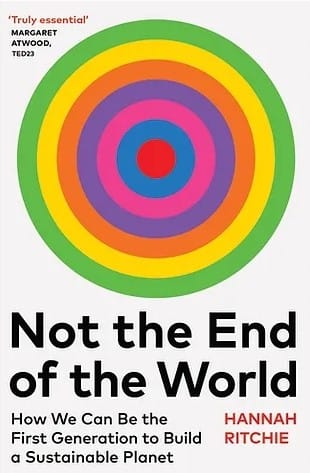
"The transport part of the food chain only contributes around 5% to all of the greenhouse gas emissions from food. Most of our food’s emissions come from land-use change and emissions on the farm: the methane-burping cows; the emissions from fertilisers and manure; the release of carbon from the soils."
"The world now produces more seafood from fish farming than it does from wild catch in the ocean."
"If you are living today, you are in a truly unique position to achieve something that was unthinkable for our ancestors: to deliver a sustainable future."
"I often feel embarrassed to admit that I’m an optimist. I imagine it knocks me down a peg or two in people’s estimations. But the world desperately needs more optimism. The problem is that people mistake optimism for ‘blind optimism’, the unfounded faith that things will just get better. Blind optimism really is dumb. And dangerous."
"Optimism is seeing challenges as opportunities to make progress; it’s having the confidence that there are things we can do to make a difference. We can shape the future, and we can build a great one if we want to."
Mathias Sundin
The Angry Optimist
By becoming a premium supporter, you help in the creation and sharing of fact-based optimistic news all over the world.

